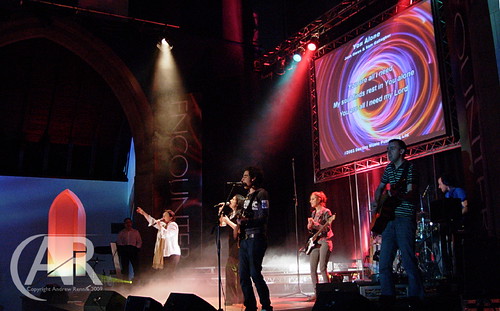From my perspective as a speechwriter, Dave Ramsey is a confident and effective public speaker. It was a pleasure to watch him work this week.
I went to two of his events, and both were extremely well done. If you haven’t heard of him, Dave Ramsey is a bestselling personal finance author, with a syndicated radio show during which he counsels people on getting out of debt. He employs over 500 people at Ramsey Solutions, which provides products and services to help people manage money and build wealth.

(Dave Ramsey.)
My science fiction friends (and SF fans in general) might particularly appreciate the Ramsey philosophy, as part of it accords with one of Robert A. Heinlein’s aphorisms from “The Notebooks of Lazarus Long” (found in Time Enough for Love):
Sovereign ingredient for a happy marriage: Pay cash or do without. Interest charges not only eat up a household budget; awareness of debt eats up domestic felicity.
But as much as I appreciated the content of the two events — how to succeed in business and build personal wealth by hard work and the old-fashioned notion of spending less than you earn (which I understand intellectually but struggle with in terms of paying down our debts and overcoming my own bad habits) — I also appreciated the events from a public speaking perspective. Mr. Ramsey was not the only speaker, but he was clearly the most accomplished; it was easy to see, for instance, that the youngest of the speakers still has room to grow, but he has a great example to follow.
Specifically, public speakers can learn several lessons from him:
- Authenticity. He doesn’t try to sound like someone else, and therefore he comes across as authentic and sincere. At one point he alluded to not being able to do a particular accent, and he didn’t try just to prove the point. And when he told a story about Winston Churchill and quoted one of the Prime Minister’s speeches, he didn’t try to sound like Churchill. He was himself, which is exactly what the audience wanted.
- Simplicity. Not in terms of the stage, because the big screen and the lights and such were not exactly simple, but in terms of having a consistent message that he reiterated often. He employs some pithy lines at times — “debt is dumb, cash is king” is one of his taglines — but the illustrations he used were on point and he brought everything back to the central theme again and again.
- Variety. He used a variety of visual aids, from movie clips (for which I’m sure he paid a royalty) to slides to physical objects, all of which helped to keep the audience’s attention. In terms of his slides, I wish some of my old clients could have seen how few slides he used! He used the slides and other aids sparingly, to make specific points — he didn’t rely on them. More often than not, the only thing on the screen was the title of the event.
When the Tuesday event was over, I happened to be standing at the door of his hotel when he got there. I waved and said, “Nicely done today,” not wanting to intrude too much on his time — then he stopped long enough to shake my hand and thank me for coming, which I thought was very gracious. (His assistant gave me the side-eye, though, and acted as if he wanted to hustle Mr. Ramsey into the building; I think he was afraid I was going to pull out my phone and try to snag a picture.)
One final note on the public speaking aspect: I very much appreciated something Mr. Ramsey said during the Tuesday event. He was lauding his AV team and explaining that he never worries about how things are going to run or how they will sound when he shows up to do his sound check, and then he made a point that I wish some of my old clients could have heard: he said he always runs through his slides even if he’s given that presentation many times before, because he’s a pro.
Yes, indeed. If you’re a public speaker, take some cues from a professional like Dave Ramsey: be authentic, keep the overall message simple and clear, employ a variety of visual aids, and practice.
___
P.S. If you or someone you know needs help developing a speech for a big event, get in touch and let’s see if I can help. My aim as a speechwriter is to help my clients sound like their most authentic selves, and to tailor their messages so they resonate with the audience.
___
For more information on Dave Ramsey and Ramsey Solutions, visit https://www.daveramsey.com.

















